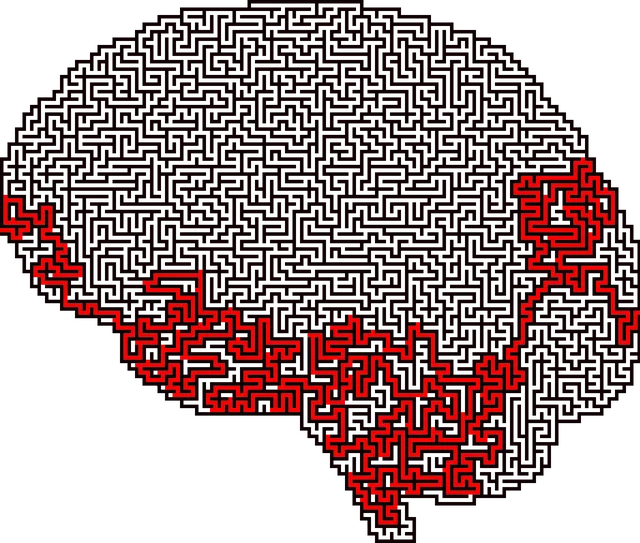Evaluating mental wellness programs, such as those at Kaiser's inpatient facility in Louisville, requires a nuanced approach combining quantitative and qualitative methods. This includes surveys, structured interviews, and observations to assess symptoms, social skills, and emotional intelligence. Kaiser Louisville's comprehensive care model uses diverse evaluation techniques to tailor treatments, improve outcomes, and reduce stigma. Their multi-faceted evaluation ensures programs remain responsive to individual needs and the complex nature of mental wellness interventions.
Mental wellness program evaluations are crucial in measuring the effectiveness and success of healthcare services, especially for inpatient mental health programs like those offered by Kaiser in Louisville. This article explores methods used to assess such programs, focusing on key techniques and data collection strategies. We delve into how Kaiser’s inpatient mental health services in Louisville are evaluated, highlighting the importance of understanding mental wellness evaluation methodologies for gauging program impact and identifying areas for improvement.
- Understanding Mental Wellness Program Evaluation
- Kaiser's Inpatient Mental Health Services in Louisville
- Key Methods for Assessing Program Effectiveness
- Data Collection Techniques in Mental Health Evaluations
- Measuring Impact and Success of Inpatient Programs
Understanding Mental Wellness Program Evaluation

Evaluating mental wellness programs is a multifaceted process that goes beyond measuring mere satisfaction or adherence to treatment protocols. It involves a deep understanding of the program’s goals, methodologies, and impact on participants’ lives. This comprehensive assessment is essential for identifying areas of success and areas in need of improvement, ensuring that mental health services remain effective and aligned with individual needs.
At Kaiser, for instance, their inpatient mental health services in Louisville utilize a range of evaluation methods to assess patient progress, including structured interviews, self-report questionnaires, and observations. By integrating these approaches, Kaiser aims to gain insights into various aspects of mental wellness, such as symptoms, social skills, and emotional intelligence (Kaiser, 2023). This holistic evaluation extends beyond the hospital stay, supporting individuals in navigating their journey towards long-term recovery by providing tailored Trauma Support Services and fostering essential Social Skills Training.
Kaiser's Inpatient Mental Health Services in Louisville

Kaiser’s Inpatient Mental Health Services in Louisville offer a comprehensive care solution for individuals seeking specialized support. This program is designed to address severe mental health conditions, providing an intensive and structured environment. With a dedicated team of mental health professionals, Kaiser focuses on evidence-based treatments tailored to each patient’s unique needs. The facility aims to facilitate recovery by offering a range of services, including individual therapy, group counseling, and psychoeducation.
In light of the challenges faced in the mental health field, Kaiser Louisville incorporates innovative practices. They prioritize Risk Management Planning for Mental Health Professionals, ensuring safe and effective treatment delivery. Additionally, Conflict Resolution Techniques are integrated into their approach to foster positive patient-caregiver relationships. Public Awareness Campaigns Development is another aspect where Kaiser excels, aiming to reduce stigma and promote early intervention, which ultimately contributes to better outcomes.
Key Methods for Assessing Program Effectiveness

Evaluating the effectiveness of mental wellness programs is paramount to understanding their impact and making informed improvements. Key methods include both quantitative and qualitative assessments, offering a comprehensive view of program success. Surveys and questionnaires are powerful tools for gathering data on participants’ perceptions of their emotional well-being promotion techniques, with metrics tracking changes in symptoms, coping strategies, and overall mental health status.
Additionally, structured interviews provide deeper insights into individuals’ experiences, particularly when examining the role of cultural sensitivity in mental healthcare practice. Observational methods can also be employed to assess social skills training initiatives, where therapists or trained observers note improvements in communication, interpersonal relationships, and group dynamics. This multi-faceted approach ensures a holistic understanding of program outcomes, reflecting the complex nature of mental wellness interventions, especially within settings like Kaiser’s inpatient mental health facilities in Louisville.
Data Collection Techniques in Mental Health Evaluations

In mental wellness program evaluations, effective data collection is paramount to understanding the efficacy and impact of interventions. Techniques such as standardized questionnaires, clinical interviews, and observer ratings provide structured assessments of an individual’s mental health status. These methods help capture subjective reports of symptoms, emotional regulation abilities, and overall well-being, offering a comprehensive view of the participant’s mental health journey.
When examining programs like those provided by Kaiser in Louisville, or any other healthcare institution, researchers employ diverse data collection strategies. This may include self-report measures to gauge Mental Health Awareness and Emotional Regulation, as well as semi-structured interviews to delve into participants’ experiences with Mental Wellness Coaching Programs Development. By combining these techniques, evaluators can assess both the immediate outcomes of interventions and their long-term impact on individuals’ overall mental wellness.
Measuring Impact and Success of Inpatient Programs

Evaluating the impact and success of inpatient mental health programs is a multifaceted process, especially for renowned healthcare providers like Kaiser in Louisville. Beyond tracking traditional metrics such as patient length of stay and readmission rates, assessing emotional healing processes and mood management techniques becomes paramount. Kaiser’s Louisville facility, for instance, employs a range of methods to measure these aspects, including self-reported patient surveys, clinical assessments, and interviews. These tools help gauge improvements in emotional well-being promotion techniques and overall mental health status.
By integrating qualitative data from patient feedback and clinical observations with quantitative measures like reduction in symptom severity, researchers can gain deeper insights into the program’s effectiveness. Such comprehensive evaluation enables Kaiser to continually refine its inpatient programs, ensuring they remain responsive to evolving needs and best support emotional healing processes for all patients.
Mental wellness program evaluations are crucial for understanding the effectiveness and impact of services, such as those offered by Kaiser’s inpatient mental health services in Louisville. By employing key methods, data collection techniques, and careful measurement of success, healthcare providers like Kaiser can ensure their programs meet the needs of patients and achieve positive outcomes. This comprehensive approach not only enhances patient care but also serves as a testament to the importance of continuous evaluation in improving mental health services, both in Louisville and beyond.






